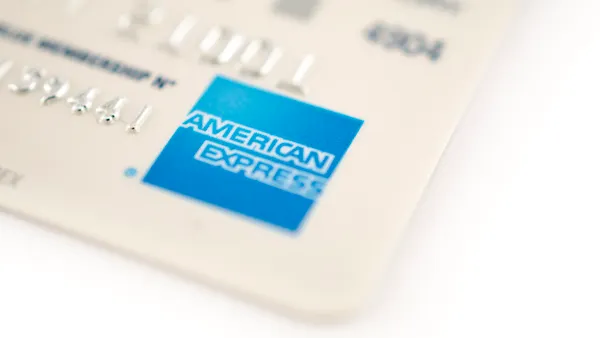Dive Brief:
- A third of U.S. adults have been victims of real-time payment scams, and nearly three-fourths have been contacted by a scammer in such transactions, according to the results of a second annual survey by the San Jose, California-based data analytics firm FICO. The survey was conducted in July and the results were released on Nov 13.
- The survey of 1,000 consumers regarding the non-card payments showed that scammers have sent 75% of U.S. adults emails, texts or calls, an increase from 68% in the same survey last year, and 33% said they paid a scammer in 2024, compared with 20% in the 2023 survey.
- “The extent to which consumers are now reporting that they have received a potential scam or have become a victim, unfortunately, of a scam, that continues to increase,” said Debbie Cobb, the vice president for product management at FICO.
Dive Insight:
FICO’s clients include banks and other financial institutions that offer real-time payment methods. The Bozeman, Montana-based data analytics firm is synonymous with the FICO score, a measure of a consumer’s creditworthiness that the company derives from a person’s credit history.
Cobb said the results of the survey should show financial institutions the concerns their customers have and how to adequately address them. “The number one item that bank consumers want from their banks is better fraud [and scam] protection,” she said.
Bad actors will often create fake profiles on dating websites or pose as a potential employer in order to bilk money from unsuspecting victims.
U.S. consumers lost about $2.7 billion to these so-called impostor scams in both 2023 and 2022, according to data from the Federal Trade Commission. That figure was $2.1 billion in 2021.
Aided by advances in artificial intelligence and the increased use of instant payment networks, scams are becoming more ubiquitous, and are more difficult to fight than third-party payment fraud — which is when a criminal hacks a consumer’s credit card or bank account and steals money — because the victim has authorized the transaction, Cobb said.
The move to instant payments networks and the rise in scams is connected, she said, as criminals see opportunity in a payment method that transfers money instantly.
The Federal Reserve last year launched a new real-time payments system, called FedNow, which competes with the private RTP network operated by The Clearing House. Some payment methods, such as Zelle, offered by Early Warning Services, also act like instant payment systems.
“Traditional third-party fraud, where someone obtains access to your card or your credentials, is often easier to identify,” Cobb said. “All of that goes out the window when you're talking about a scam, because the consumer is the one making the payment.
FICO recommends banks use some of the same advanced technology that criminals are turning to, and that means making use of artificial intelligence and analytics models, Cobb said.
“A lot of the typical strategies that banks use to identify fraud don't work when it comes to identifying scams, she said.”
Survey respondents listed protection from fraud and scams as the number one concern about their bank activity and said they don’t mind if financial institutions put up guardrails in the name of preventing scams, Cobb noted.
The FICO survey found that 75% of respondents would feel positively about their bank if it slowed down a suspicious real time money transfer.
“Customers are more than willing to have you put a little bit of sensible friction into that process to make them aware and maybe give them a second to think about whether they want to make that transaction,” Cobb said.
The survey results show that the banks that issue credit cards and operate instant payment networks need to be responsive to customers who have been victimized by scams, and be proactive in flagging or slowing down suspicious transactions, she said.














